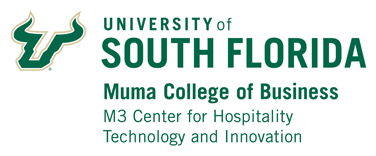Abstract
Based on the Social Amplification of Risk Framework (SARF) and crisis decision theory, this study examined the influence of trust in different types of information sources on the believability of COVID-19 information (BCI). Furthermore, the influence of BCI on fearfulness and the corresponding influence of fearfulness on the intention to use hospitality services and stay at home are analyzed. Structural equations modeling, using data from 1,017 American consumers, successfully confirmed the significant influences of trust in media and government on BCI and the corresponding positive effect of BCI on fearfulness. Additionally, the negative effects of fearfulness on intentions to visit hotels and restaurants (general and Chinese) and the positive effects of fearfulness on intentions to stay at home and use third-part food delivery services are validated. Trust in social media was not found to influence BCI and the negative effect of fearfulness on Chinese restaurants was weaker than that of general restaurants. Numerous implications are offered for practitioners.
Keywords
Coronavirus, Chinese restaurants, food delivery, social amplification of risk framework, crisis decision theory
ORCID Identifiers
Shaniel Bernard: https://orcid.org/0000-0003-0849-1169
Imran Rahman: https://orcid.org/0000-0002-8526-2581
Sijun Liu: https://orcid.org/0000-0002-4037-8388
Luana Nanu: https://orcid.org/0000-0002-6157-330X
DOI
10.5038/2771-5957.1.2.1009
Recommended Citation
Bernard, S., Rahman, I., Liu, S., & Nanu, L. (2022). COVID-19 and hospitality services: The role of information sources, believability, fear, and behavioral intentions. Journal of Global Hospitality and Tourism, 1(2), 110-127. https://www.doi.org/10.5038/2771-5957.1.2.1009
Creative Commons License

This work is licensed under a Creative Commons Attribution-Noncommercial 4.0 License
Included in
Business Administration, Management, and Operations Commons, Hospitality Administration and Management Commons, Marketing Commons, Tourism and Travel Commons


